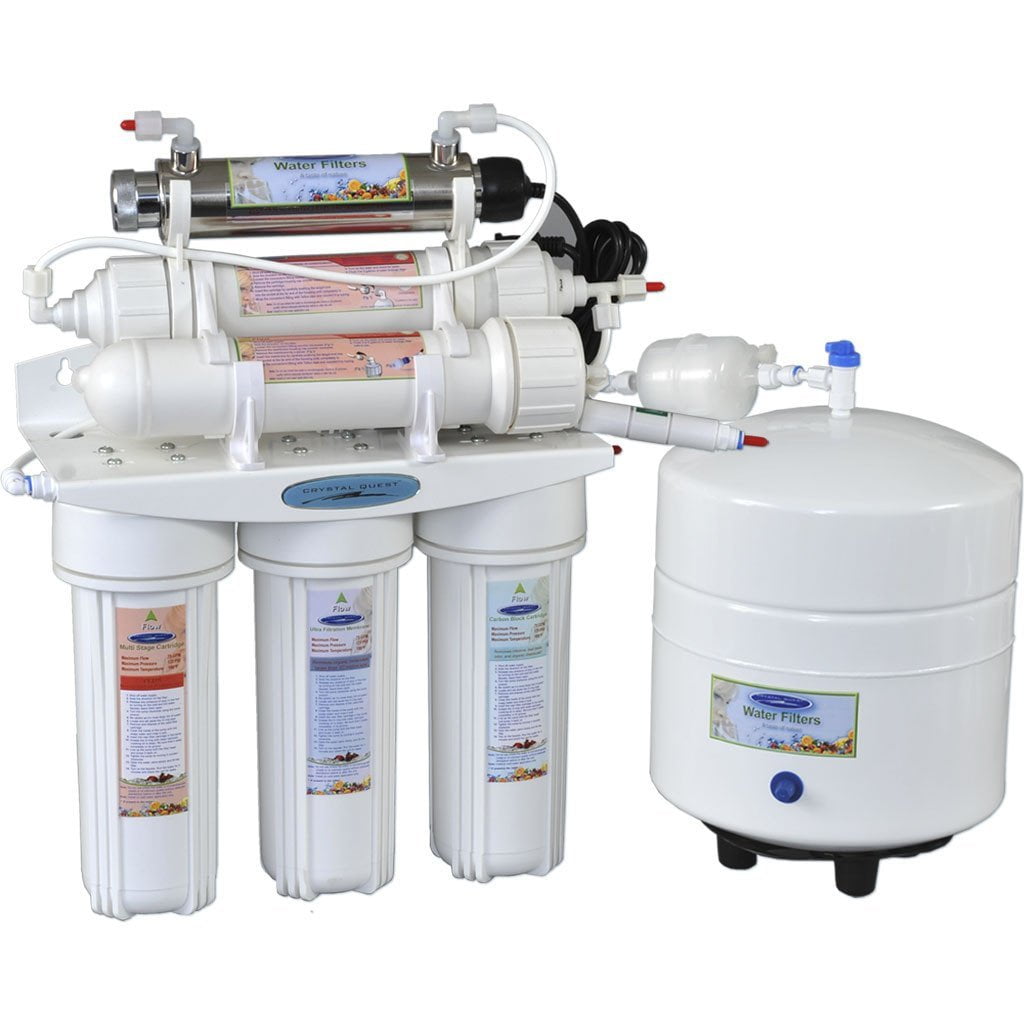
Generally, a reverse osmosis water filtration system will contain some form of sediment filter that is used to capture particles such as rust and calcium carbonate. Another filter, with smaller pores, is then used to capture even smaller particles. An activated carbon filter is also used to trap certain chemicals and chlorine, both of which can be harmful to the RO membrane if they get to it.
In order for a reverse osmosis system to perform properly, the incoming water must be under some level of pressure. For many units the pressure needs to be around 40 psi or so. It is this pressure that forces the incoming water through the various membranes and filters.
What is Reverse Osmosis: Membrane size matters!
In quality RO water filter units, the membrane pore sizes can vary from 0.1 nanometres to 5,000 nanometres, depending on filter type. As a general rule, particle filtration sizes remove particles of 1 micrometre or larger. Micro-filtration will remove particles that are 50 nm or larger. For particles 3 nm and largert, ultra-filtration is used and nano-filtration will remove particles of 1 nm or larger. At this point, reverse osmosis comes into play, known as hyper-filtration, and it can remove particles larger than 0.1 nm.
Consumers who are interested in installing reverse osmosis water filters should do some research before purchasing. Read the literature concerning the pore sizes as well as the needed pressure requirements. In order for RO water filters to perform correctly, chlorine must be removed from the incoming water before it reaches the membranes. Make sure the unit you buy can do this.
Lastly, understand that while reverse osmosis water filters are considered some of the most effective means of cleaning water, they do use a lot of water during processing. This can mean higher water bills if you get your incoming water from a municipal source.


Share:
Advantages of Undersink Water Filters
Why do People use Drinking Water Filters for Drinking Water?